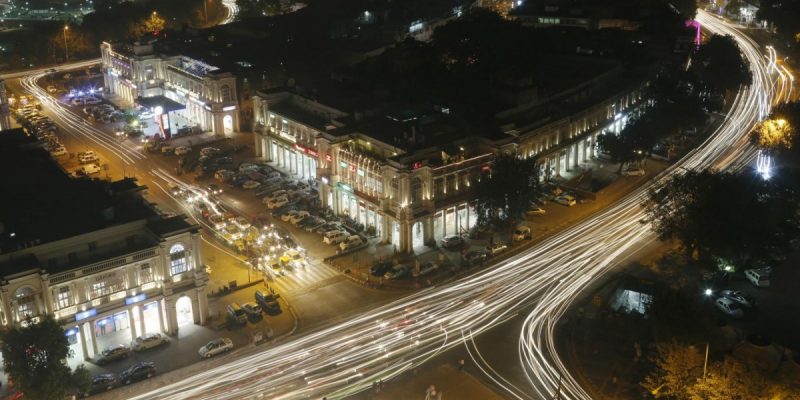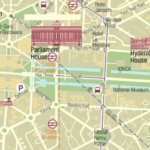I came to Delhi as a 16-year-old Tamil girl. I came alone on the Tamil Nadu Express, travelling far from my home to the promised land of a good education in humanities and social science. I knew I wanted to be a historian.
To me, Delhi was the land of Uma Chakravarty, Sumit Sarkar and Tanika Sarkar. My first walk through the halls of Lady Shri Ram College for Women (LSR) left me stunned by the warmth of the young women who were welcoming newcomers to the college and the city.
I did not know before this that women, who were around my age, could take charge like that, but there these women were. I knew this is where I wanted to be, amongst these women who ‘took charge’. Thus began my long love affair with ‘Dilli’.
During the first week of college itself, a man unzipped his pants and masturbated on my shoulder on the bus. I got back to my paying guest (PG) accommodation and cried inconsolably. I called my parents and said, entirely in Tamil, “Get me out of this hell, I want to come home.”
Also read: A City or a Capital? The Trouble With New Delhi’s Identity
My parents were worried. I imagine they were prepared about my heading home to Chennai if I continued to feel this way.
Two years later, I directed my first play. It saw a hundred shows. It was performed ONLY in very crowded public spaces in Delhi – railway stations, bus stops, markets etc. To top it all, it was forum theatre and involved extensive engagement with the audience. The play was called ‘Aapne Dekha Toh Hoga (you must have seen this before)’. It was on sexual harassment. It was our contribution to the outrage that had spread amongst women students at Delhi University and the protests that followed, after the brutal gangrape of a female student at the Delhi University North Campus in broad daylight.
I was 19.
Dilli is a tough place. Anyone who has lived and loved there knows that. But Dilli also fills you up with hope. Even as I sat in the 724 bus from Munirka to get to LSR, for a minimum of an hour and a half, I wrote love letters on bus tickets. The AIIMS flyover was being constructed then.
Within my first semester in college, I had made so many friends; I had become an activist in my own way. And I fell madly in love – with a woman no less. Dilli, ironically, gives you space to breathe. It is as if, the sheer layers of history and lives lived there, that has survived so much, cannot help but make your heart grow bigger.
Also read: The History Behind Delhi’s Weekly Bazaars
I remember the annual Babri Masjid demolition remembrance day events at the Delhi University north campus on December 6. Nivedita Menon, our teacher at that time, and Uma Chakravarthy and many other teachers, invited those of us interested to participate to sing and read poetry.
Every year, I came and felt a sense of meaning and purpose by participating in the event. Here, I heard of the poets, thinkers and leaders who stood for peace, poetry and love- expanding hearts. We were also informed of reports about how the demolition of the mosque was meticulously planned and was done so over decades. Here, I began singing ‘Hum Dekhenge’ and fell in love with Faiz and Iqbal Bano. The song, it seems, will not leave me for life.
When the carnage in Gujarat happened in 2002, we all did what we could. We sought comfort in Dilli, or at least I did. I wonder if that’s when Hazrat Nizamuddin and Amir Khusrao began group hugging me every Thursday at the qawwalis. We listened to music and then sat at Ghalibs over beef kababs and soft rumali roti, discussing love, politics and talking utter nonsense for hours on end. We had the favourite waiter – the hamara apna.
The South Indian girl who was made fun of for not knowing Hindi in the first year made an entire speech in Hindi on sexuality rights in 2010. I spoke on a huge public stage in Jantar Mantar in front of thousands of women who had marched together that International Women’s Day. I know for a fact that this is not space that Chennai would give someone. There would be endless talk of how someone is not Tamil even if they had lived there for decades. In Dilli, yes, it can be brutal, but somewhere the heart opens up and holds you within.

Old Delhi’s Chandni Chowk area. Credit: Reuters/Parth Sanyal
I had heard of the 1984 riots in much detail. I have been to Jungpura since, where so many affected by the riots live. I also can never think of the 84’ riots without thinking of the fact that, as a woman travelling in Delhi, night or day, when I feel unsafe, I would make sure to hail a Sardarji’s taxi. And that space felt safe to me. On dark scary nights which can make a woman’s fist stiffen and ready for battle on the streets of Delhi, my only safety were those of the community who were methodically massacred in their own homes by the state that is supposed to protect us all. Consider that for a moment.
I had heard of the Emergency months – of the brutal suppression of civil rights activists, of continuing to organise on the university campus. It was on those very streets where Safdar ’s (Hashmi) voice was silenced that I became an activist. Because I also knew that Mala (Hashmi)and Janam returned to the same spot and performed the same play two days later. Whatever it was that these violent episodes did to the city, it did not curb its nature of making space to grow, to hold your own, to live as you are.
Also read: How Several Languages Took Flight in Delhi
Dilli always gives you little gifts on any given day. Many cities do that, I have noticed. But Dilli is the place where I have had humans deliver those gifts. On a very low day, an auto driver might play, just the right song. When bogged down by hatred, a gush of love may come to you from a complete stranger. Dilli and its hearts haven’t let me down in this regard.
The street chockfull of books on Daryaganj have made me who I am. That little corner at Jama Masjid, where you watch the sunset over the dome and read poetry, quietly by yourself or to a lover or a friend shapes a heart, a soul. A good meal at Kareem’s has you dreaming of it for days.
When the Commonwealth Games came upon us, we fought for the city. We said as loud as we could that no ‘games’ were worth destroying our dear Dilli.
Dilli made me brave. Dilli made me tough. Dilli made me soft. Dilli taught me love. Dilli filled my soul with history.
I have travelled and lived in so many places since. With many an interesting things. But none quite like the heart-expanding Dilli.
To hate is exhausting. And yet so many do it so often. I only hope that the many layers of Dilli will fold and heal these scars. But I also know that even as they heal, Dilli will continue to fill another young South Indian girl’s heart with love, light and hope.
Because, it is Dilli after all.
Ponni Arasu is a Tamil feminist historian and activist.




